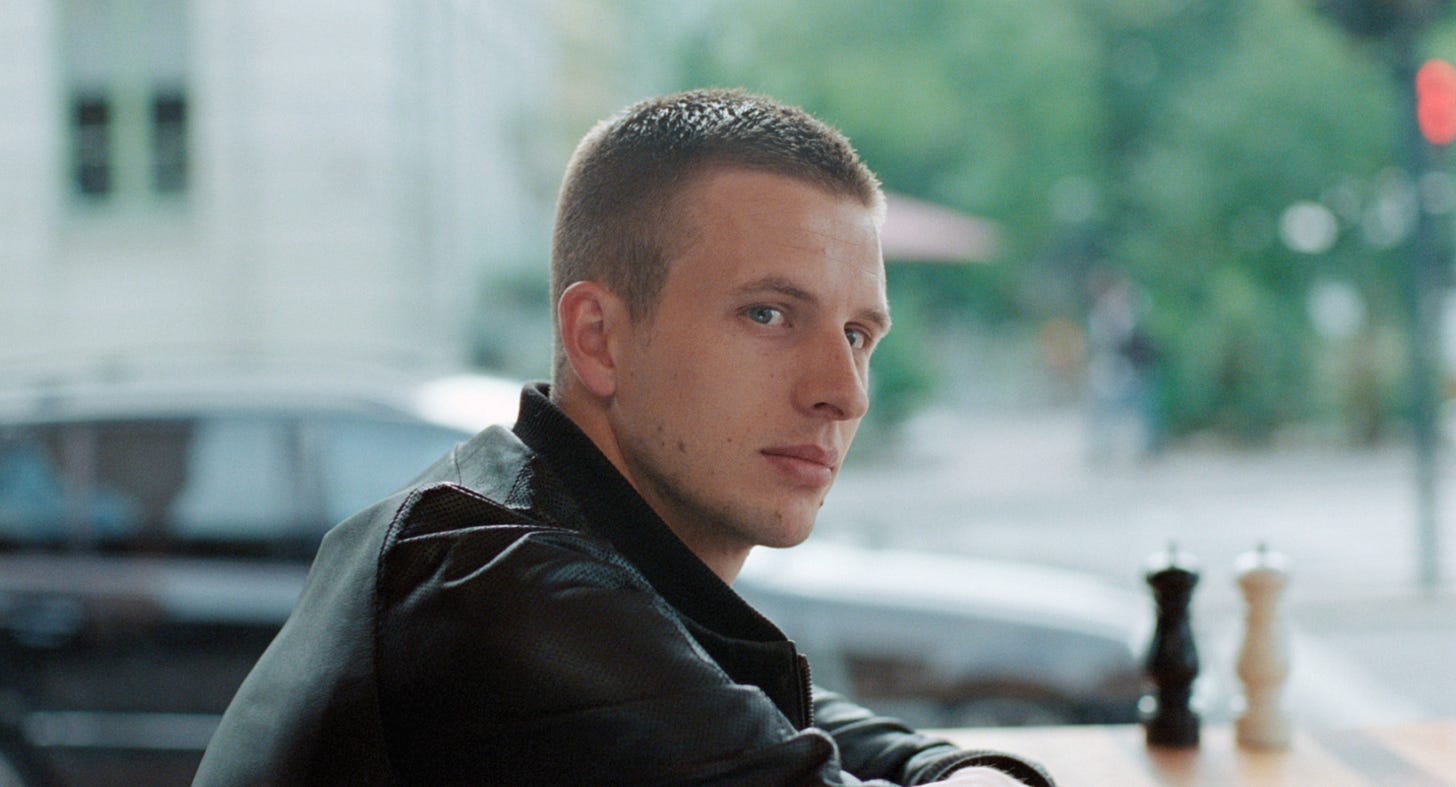
Spoilers for Oslo, August 31st (2011). Trigger warnings for discussions of drug addiction, mental illness and suicide
The second film in Joachim Trier’s Oslo trilogy - joining Reprise (2006) and The Worst Person in the World (2021) – is loosely based on Pierre Drieu La Rochelle's novel Will O' the Wisp. It follows Anders (Anders Danielsen Lie), a recovering drug addict who is given leave from rehab to attend a job interview.
It's an intense character study, focused on Anders’ sense of failure and inability to see a possible future. We see this at the start of the film, where he attempts to drown himself in a lake following a previous release after meeting up with an ex-girlfriend.
When he meets his friends Thomas (Hans Olav Brenner) and Rebekka (Ingrid Olava) before his job interview, Anders is despondent. He believes that he will never get the job and that too much has happened for him to start over. Even when Thomas explains that his life hasn’t worked out exactly how he wanted, despite being happily married with children, Anders refuses to see past his past mistakes.

This self-destructive nature informs and complicates the ending of the film. Throughout, it gradually becomes clear that this is Anders’ last day. While we have seen suicidal ideation from the character at the beginning of the film, he commits to this decision when he visits his dealer and insists on buying a full gram of heroin – while addicts may be able to tolerate nearly two grams, we know that Anders has been clean for several months.
This comes after he has already relapsed, drinking and partying with friends he meets at a party.
It would be easy to assume that Anders always planned to kill himself, based on his previous attempt, but we’re not given any context as to how long ago this was. We only know that Anders has been clean for around half a year and that the date is the 30th of August – much of the film takes place the day before the titular date. The fact that he is going for an interview – and attends it – suggests that he is at least hoping for something that will stop the feeling of hopelessness.
If you were to pinpoint a moment when he made his decision, you could look at the interview itself. It’s a role for an editorial assistant, something Anders is overqualified for, and his candour seems to go down well initially. However, when the interviewer asks about a four-year gap in his employment history, Anders reveals his drug addiction.
Some writing on the film has suggested that David (Øystein Røger) is uncomfortable upon hearing this, causing Anders to walk out. I have a slightly different reading. While there’s no doubt that David is visibly taken aback, enough to make Anders think he has ruined his opportunity, I don’t believe that David was going to retract the offer of a job because of it.
If you watch David when Anders walks away, he seems to genuinely want to continue the discussion and even offers to keep Anders’ details on file. However, Anders believes that he will be forever judged on his past actions and would rather cut himself off than be cut off by someone else.
You can see this in the messages he leaves for his ex-girlfriend Iselin. Anders attempts to call her three times throughout the film; just before his interview, before he goes to the dealer, and before he takes an overdose. The first two messages are urgent, begging her to come see him or call him back. During the final message, he says that he didn’t mean a thing he had previously said. Again, rather than face rejection, he proactively cuts them out.
After the interview, Anders has arranged to meet with his sister, Nina. This is a rejection he cannot control, as Nina does not want to see him and instead sends her girlfriend Tove (Tone Mostraum). Before going there, he sits in a café. Trier does something here that is repeated several times throughout the film; he takes the focus away from Anders, allowing the audience to move between background characters within the scene.
As the camera switches between the café customers, we hear discussions of minor problems within their lives; we hear old friends meeting up; families talking amongst themselves; and college students laying out their hopes and dreams for the future. Anders feels none of this. He smiles at some moments, fleetingly. More than at any other point in the film, he feels completely hopeless. He feels that his past will dictate his future.
As a scene, it lacks the drama of his confrontation with Tove, or his walkout from the interview. It lacks the carefree hedonism that comes later in the film, when Anders has made his decision and decides to let himself go, with drink and drugs.
But it possibly has the most emotional power of any moment in the film. In real-time, we watch as our protagonist gives up. And he doesn’t give up on some minor aim, he gives up on life. He feels so hopeless and disconnected, so guilty over his past actions and the impact these have had on his family and friends, that he sees no other option but to kill himself. It’s a truly devastating moment.
Director: Joachim Trier
Writers: Eskil Vogt, Joachim Trier. Based on the novel Will O' the Wisp by Pierre Drieu La Rochelle
Starring: Anders Danielsen Lie, Hans Olav Brenner, Ingrid Olava, Øystein Røger, Tone B. Mostraum






